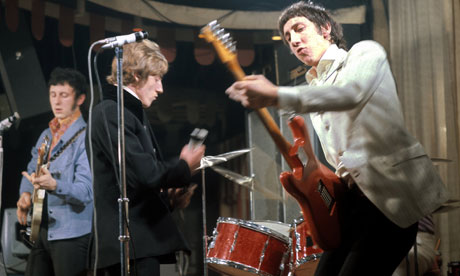
The Who's Pete Townshend famously wrote the line "Hope I die before I get old". He didn't, but fellow band member Keith Moon did. "What a drag it is getting old," drawled Mick Jagger, but it was Brian Jones who died young. Jim Morrison sang of The End being his only friend, while David Bowie brilliantly explored what it would be like to be a rock'n'roll suicide. The former died, the latter lives on.
What marks out the pop stars who die prematurely from the ones who do not?
A study published in the British Medical Journal (BMJ) provides some answers. It proves for the first time that it is not the fame that makes one prone to emotional problems, it is mostly childhood maltreatment and adversity.
Other studies had already proven that rock and pop stars die prematurely compared with the general population. This one examined a sample of 1,210 since the 1950s, with a minimum of five years of fame; 9% died prematurely.
Solo performers were twice as likely to die prematurely as ones in bands. Non-whites were also at greater risk. But the crucial finding was that Adverse Childhood Experiences (ACE) – experiences like parental divorce or maltreatments like emotional neglect or abuse were the main cause of premature death – and a key factor is that they increase substance abuse.
Twice as many of the stars who died from substance abuse had at least one ACE compared with those who died of other causes. Whereas under a third of those who died from substance abuse had no such experiences, 80% had two or more.
This is exactly what studies of the general population would predict. Having four or more adverse experiences makes you seven times more liable to abuse alcohol and 12 times more likely to attempt suicide. ACE numbers have also been shown to be a major cause of personality disorders like narcissism – which, in turn, have been proven to be common among both fame-seekers and the famous.
The number of these experiences probably also explains why stars who survive into middle age die prematurely. Childhood adversity is a major cause of other diseases: people with four or more such experiences are twice as likely to suffer cancer and heart disease, partly as a result of substance abuse.
The BMJ study accords with a wider and still little-known fact: the Human Genome Project finds that differences in DNA, our unique genes, explain very little of why people suffer the vast majority of illnesses, both mental and physical – 5-10% at most. Childhood adversity is emerging as the main cause of mental illness, along with wider social factors.
And in an age when programmes like the X Factor and Britain's Got Talent have such a deep cultural impact, the BMJ study also provides potent reasons to discourage young people from believing that fame in itself is a desirable goal.
We already know that people who place too high a value on money and fame are more at risk of the commonest mental illnesses. The BMJ study provides further scientific reasons for government to consider our new obsession with fame regardless of talent as a major public health issue. Its authors conclude that "pursuing a career as a rock or pop musician may itself be a risky strategy and one attractive to those escaping from abusive, dysfunctional or deprived childhoods".
We have created a society in which far too many people suffer such childhoods. Growing numbers of children aspire to pop stardom; those who do so, and who engage in celebrity worship, are more likely to have had high numbers of adverse experiences. The case for meeting of the needs of children gets ever more persuasive.
• This article was amended on 26 December 2012 to correct the link to the study published in the British Medical Journal, which posters had pointed out was not working. This article was further amended on 4 January 2013 because the original said Pete Townshend sang "Hope I die before I get old". Townshend wrote that line, but did not sing it.

